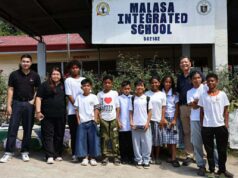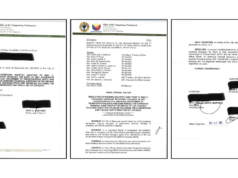Except for a few who kept close tabs on the news, most parents were surprised to know dengue vaccines existed and were only too glad to sign the notices. After all, mostly children die from dengue.
Apart from what was contained in the notices, nothing more was explained about the Department of Health’s (DOH) dengue vaccine program. The kids have been vaccinated.
“Dapat tuloy-tuloy ito (This must push through),” DOH spokesperson Dr. Lyndon Lee-Suy was quoted by CNN early this year. He was referring to the dengue vaccination program which was up for P3.5 billion funding.
The vaccine is called Dengvaxia, produced by France-based Sanofi Pasteur. It is supposed to be a three-dose vaccine given between threemonth gaps and recommended for individuals 9-45 years of age living in endemic areas.
Former Health Sec. Janette Garin said the agency would get a discounted price for the vaccine that would be used in the vaccination program starting March (2016).
She said DOH would begin vaccinating Grade 4 students in public schools in Metro Manila, and in Southern and Central Luzon. The vaccine was to be given in three doses, with sixmonth intervals.
What’s wrong with that? The Foods and Drugs Administration (FDA) had approved the dengue vaccine in December, 2015 and no less than the DOH had decided to implement vaccinations of kids in some areas. All seemed neat and set.
Except that at the time the FDA and DOH made all their pro-vaccine declarations, the World Health Organization’s (WHO) Strategic Advisory Group of Experts (SAGE) on Immunization was still reviewing the evidence for the vaccine and yet to consider major issues such as vaccine safety, vaccine efficacy, disease burden, programmatic suitability, and cost-effectiveness.
WHO-SAGE was yet to discuss the vaccine in April 2016, after which it was to provide recommendations to the WHO Director-General.
Guinea pigs
Was the DOH, therefore, viewing the target school children as some kind of guinea pigs?
At the Lakandula Elementary School in Mabalacat, information on the vaccine was limited to the slip for the signatures of parents. For an issue that’s as serious as a new vaccine for a deadly ailment, that raised questions, considering that the school is known for holding meetings with parents to tackle other issues.
The journal Science has reported a new analysis saying that the dengue vaccine should be used only in places where there is a lot of dengue cases and where most children who receive it will have already had at least one bout of the disease.
The report said this recommendation was based on a study indicating a higher rate of hospitalizations for dengue three years after vaccination in young children who got the vaccine when compared to children who were unvaccinated.
“While efficacy was reported against hospitalized and severe dengue in Years 1 and 2 post-dose 1, an excess of cases of hospitalized and severe dengue cases in those receiving (the vaccine) was seen in Year 3 in some subgroups, although it is based on relatively small numbers of cases,” the study said.
“Our current estimates indicate that in all but the highest-transmission settings, use of this vaccine may lead to an increase in the risk of hospitalization for dengue in seronegative recipients (those who never had dengue) even if the overall impact of vaccination is positive,” wrote the authors, from Imperial College London, Johns Hopkins Bloomberg School of Public Health, and the University of Florida.
In November last year, officials of Sanofi paid a courtesy call on then Pres. Aquino while he was in Paris for the 21st Conference of Parties for the United Nations Framework Convention on Climate Change. With the president were Garin, former cabinet members Cesar Purisima of fi nance, Gregory Domingo of trade and industry and Joseph Emilio Abaya of transportation who was once reported as a fund raiser for the Liberal Party in the last May elections.
Guarin said that during the meeting, Sanofi expressed its gratitude to the Philippines for its major contribution for the development of the vaccine for 20 years.
“The Philippines was among the countries where the three phases of the clinical trials were conducted so our country is very vital to the success of the vaccine,” Guarin said.
Meanwhile, parents of vaccinated kids at the Lakandula Elementary School now want independent experts to find out whether they should allow their kids to receive their second of three rounds of dengue vaccines without putting their health, nay, lives at risk.




